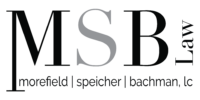Ban on Non-Compete Agreements – What It Means For Your Business
Non-compete clauses and agreements have been around for nearly 600 years. So why are they now on the verge of being eradicated and what does it mean for the future of business? Our business lawyers are here to offer an overview of this changing landscape. Background The original purpose of non-compete agreements was to protect employers from unfair competition by former employees. Employees often gain intimate knowledge about how their employer’s business operates, and are therefore in a position to take customers, clients, trade secrets, or other employees to competing with companies. What started as a “shield” to protect employers, has sometimes been used as a “sword” used to prevent workers from leaving for greener pastures. In recent months, President Biden has signed over 70 Executive Orders that focus on non-compete agreements in a variety of industries such as Banking and Finance, Technology, Labor Markets, Healthcare, Agriculture, Internet Service, and Transportation. These Executive Orders do not apply to pre-existing non-compete clauses and agreements. However, these orders favoring employees serve as a benchmark and direction for the Biden administration; and one to keep an eye on for businesses. What does Kansas and Missouri law say about non-compete agreements? Our business lawyers serve clients in both Kansas and Missouri. Our team has insight into both states’ laws. While the executive orders from the new administration limit non-compete agreements on a broader scale, Kansas and Missouri state law each have their laws that affect non-compete agreements. In Kansas, non-compete agreements are only enforceable if “terms are reasonable and necessary to protect a legitimate business interest of the employer such as customer relations or trade secrets.” In essence, an employee can compete with a former employer, but an employer can use a non-compete agreement to prevent former employees from poaching clients or using specific trade secrets from their former employer to further their business interests. Missouri state law requires that non-compete agreements meet specific criteria before enforcement. Missouri has typically restricted enforcement of non-competes to situations involving trade secrets and customer contacts and relationships. However, a new bill, introduced in March of 2021 (HCS HB 1202 – a.k.a. The Right-to-Start-Bill) would negate all-new non-compete agreements “if an employee or prospective employee receives seventy-five thousand dollars or less in income from such employers or prospective employers.” This means that highly compensated employees could be subject to enforcement if they have signed a non-compete agreement, but employees earning seventy-five thousand dollars or less in income would be exempt from enforcement. The Right-to-Start Bill has not been signed into law at this time. There are unclear elements of the new bill. While we assume the new bill intends to protect employees who earn less than seventy-five thousand dollars per year, that is not precisely what the bill states. The bill could be interpreted to protect only employees who have earned less than seventy-five thousand dollars from the employer during their entire time of employment. The argument could be made that an employee who worked for four years at twenty thousand dollars per year would not be eligible for the protection of the bill. Employers must remain knowledgeable about changing laws and regulations that will affect their businesses, and keep these issues in mind when asking employees to sign a non-compete agreement. Our business lawyers have the skill and experience to guide companies through these ever-evolving regulations. Consult with Our Overland Park Business Lawyers Our partners at Morefield Speicher & Bachman, LC have over 60 years of combined experience helping clients minimize exposure and potential catastrophe. With any concern regarding non-compete clauses or general business matters, contact Morefield Speicher & Bachman, LC at (913) 839-2808.



